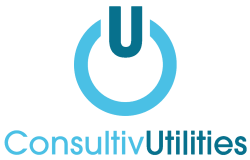What are the nuclear RAB charges?
Following on from the Sizewell C announcement earlier this year, the Low Carbon Contracts Company (LCCC) has confirmed a nuclear RAB Supplier Obligation Levy with an interim levy rate of £3.455/MWh (0.3455p/kWh) from 1st November 2025 to 31st December 2025. This rate will be updated quarterly.
There’s also a nuclear RAB Operational Levy of £0.0028/MWh from 1st October 2025.
The LCCC have published quarterly forecasts up to March 2027, ranging from c. £3.50/MWh in winter and c. £4.50/MWh in summer.
For UK businesses, this means more non-commodity charges to monitor as part of their electricity bills. This article explains what the nuclear RAB model is, why it’s being introduced, how it affects your energy costs and what steps you can take to prepare.
What is the nuclear RAB model?
The nuclear RAB model is a financing framework designed to fund large-scale infrastructure projects.
How it works: Investors receive revenue during construction, funded by levies on electricity bills.
Why it matters: This reduces investor risk, making it easier to finance multi-billion-pound projects.
Risk-sharing structure:
- Consumers (ratepayers): Pay a levy during construction.
- Investors: Share in cost overruns up to a cap.
- Taxpayers: Cover extreme overruns via government support.
This is a major departure from the Contract for Difference (CfD) model, where investors absorbed all construction risks and received no revenue until the plant generated electricity.
Why has the UK introduced the nuclear RAB?
The charges are central to the UK’s energy strategy. The government aims to expand nuclear capacity from 6 GW to 24 GW by 2050, overseen by Great British Nuclear (GBN).
Key drivers include:
- Energy security: Boosting domestic electricity production and reducing reliance on imports.
- Decarbonisation: Providing low-carbon baseload power for net zero goals.
- Replacing aging reactors: Most of the UK’s existing nuclear fleet will retire by 2035.
- Financing challenge: Nuclear projects are extremely expensive, requiring billions in investment.
Who will pay?
- Businesses on pass-through electricity contracts: Charges automatically added.
- Businesses on fixed electricity contracts: Many suppliers include clauses allowing these charges to be passed through. Clarify with your provider or review your energy contracts.
Are there any exemptions?
- Businesses eligible for the Energy Intensive Industries (EII) exemption scheme will not pay nuclear RAB charges.
How your business can prepare for the charges
- Budget in advance – Factor the charges into your forecasts.
- Review your contracts – Consultiv Utilities offers expert business energy procurement to help you understand contract terms.
- Check for exemptions – If eligible, apply for EII exemption support to avoid paying these charges.
How Consultiv Utilities can help
These new charges add another layer of complexity to already intricate non-commodity energy costs. Rates will vary quarterly, and exemptions differ by sector.
If you choose to work with Consultiv Utilities, we’ll:
- Keep you updated on the quarterly RAB increases once we have updates to share.
- Validate nuclear RAB charges on your bill through our bureau service.
- Strategic procurement to minimise exposure.
- Provide ongoing support in navigating regulatory changes.
To discuss how the charge will affect your business energy bills, contact Consultiv Utilities today.
Get in touch
Categories:

